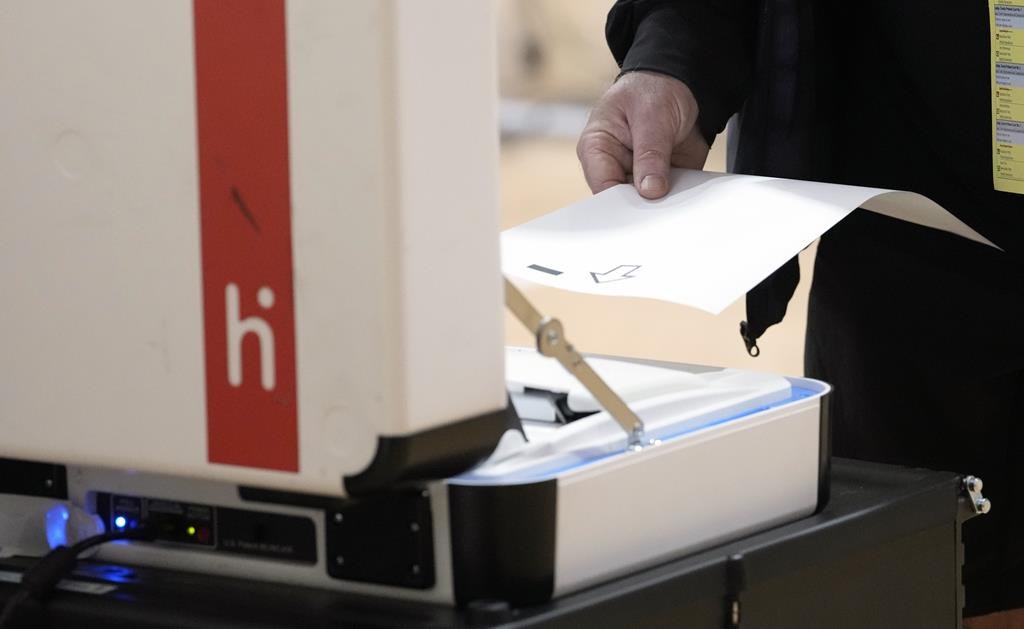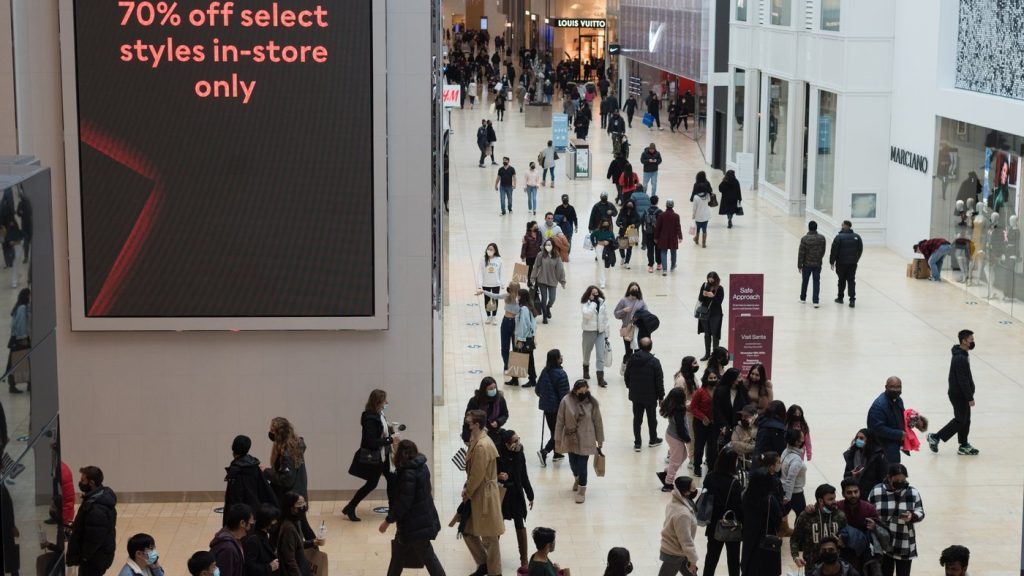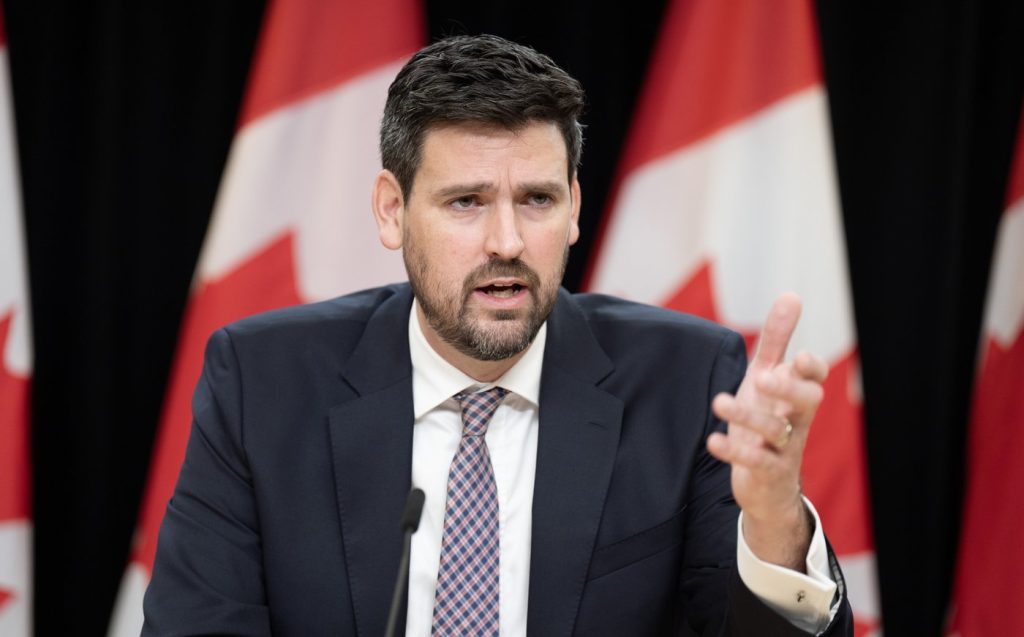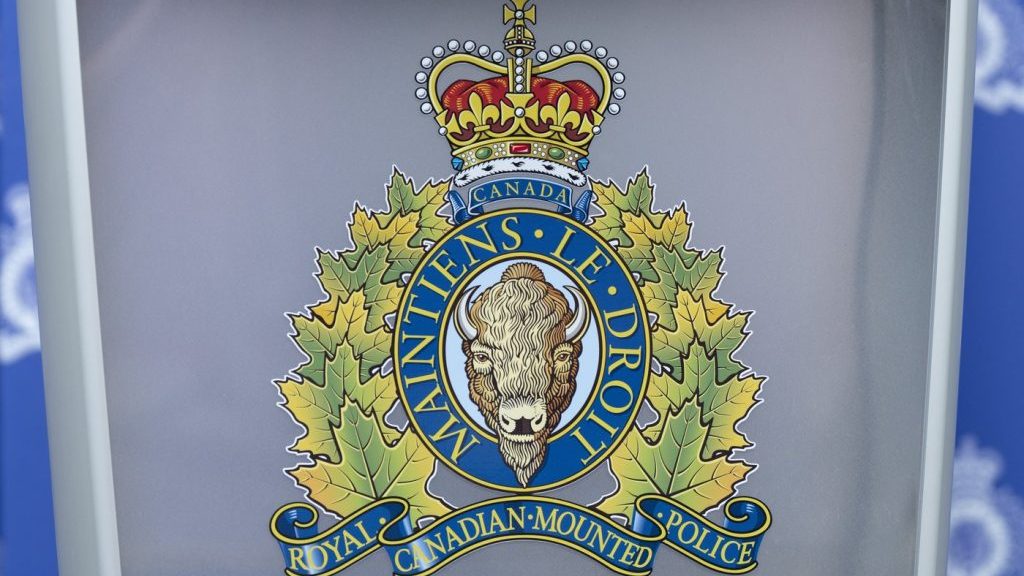A test case challenging election results in Texas’ biggest county follows a post-Trump playbook

Posted Aug 1, 2023 08:31:59 PM.
HOUSTON (AP) — Harris County, Texas, beset by Republicans looking to influence the Democratic stronghold’s elections, this week is hosting the first trial seeking to overturn local contest results from last November.
Similar court challenges have become more common around the country following baseless conspiracy theories spread by former President Donald Trump and his supporters alleging the 2020 presidential election was stolen by President Joe Biden’s backers. Election denialism is likely to make its way into the Houston, Texas, trial, which is expected to last two weeks and be decided by David Peeples, a visiting judge from San Antonio.
Elections in the nation’s third-most populous county — and one with large numbers of Hispanic and Black voters — have been scrutinized for several years now. Some polling locations on Nov. 8 opened late or had long lines due to problems with voting machines. During the March 2022 primary, there was a shortage of poll workers and about 10,000 mail ballots weren’t counted the day of the election.
The Texas Legislature passed new laws this year seeking more influence over Harris County elections, including a measure that eliminates the county’s top election office. Another new law allows the state to take over elections in any county with a population of at least 4 million people if problems recur. Harris County is the only jurisdiction that meets the criteria. Dallas County is a distant second, with 2.6 million residents.
Lawyers in the Houston courtroom Tuesday said various problems in last November’s midterm elections cost their Republican client her chance at becoming a district court judge, the first of almost two dozen lawsuits seeking to toss out election results in Texas’ most populous county.
Former GOP judicial candidate Erin Lunceford is suing in civil court to throw out the election results and have the court order a do over. The case is being live streamed.
Andy Taylor, one of Lunceford’s attorneys, used his opening statement to list multiple mistakes by local election officials that he said contributed to his client’s loss or cast doubt over the election’s outcome. He cited paper ballot shortages that he alleged targeted Republican voting locations and hundreds of other mistakes, including in ballot scanning and with reviewing signatures on mail-in ballots. Taylor alleged about 3,000 people were turned away from polls because of paper ballot shortages.
“Just the lack of ballot paper is enough evidence we believe to support a new election,” he said.
Lunceford’s opponent, Democrat Tamika Craft, won the election by 2,743 votes out of more than 1 million cast.
Her lawyers and Harris County officials say there’s no evidence ballot shortages or other problems prevented people from voting or that illegal votes were counted.
Kevin Haynes, one of Craft’s lawyers, said during his opening statement that Lunceford’s attorneys are using a “kitchen sink” approach to make numerous allegations and that they are relying on “so-called experts” who have no experience running elections, no training on the Texas election code and who work for the county’s GOP party.
“The bottom line is she lost the election and it was legal. There is no conspiracy,” Haynes said.
He accused Lunceford and her supporters of pushing unfounded conspiracy theories to overturn the election. He played part of a video deposition in which the plaintiff, who is not expected to testify, said she was suspicious of a conspiracy among Harris County election officials.
“I don’t think they wanted certain Democrats to lose,” she said.
The first three witnesses who testified for Lunceford — all election poll supervisors at voting locations — described running out of paper ballots hours before the polls closed. They testified about having to turn away hundreds of voters. One took the stand in person and the other two by video deposition.
When questioned by Craft’s attorneys, the witnesses said they had no information on whether the individuals went to other nearby polling locations to cast their ballots. Voters were allowed to cast their ballots in any of the county’s 782 polling locations.
A report released in July by the Alliance for Securing Democracy looked at Harris County’s November election as well as two other recent ones in counties in Arizona and Michigan. The organization found administrative mistakes were being used to help “erode faith in U.S. elections.”
“They want to take those mistakes and suggest without additional evidence that those mistakes are enough to justify overturning the results of an election,” said David Levine, one of the report’s authors and a former local election official in Idaho. He’s now a senior fellow with the German Marshall Fund’s Alliance for Securing Democracy.
“That’s a really dangerous place to be for a healthy democracy,” he said.
___
Follow Juan A. Lozano on Twitter: https://twitter.com/juanlozano70
Juan A. Lozano, The Associated Press








